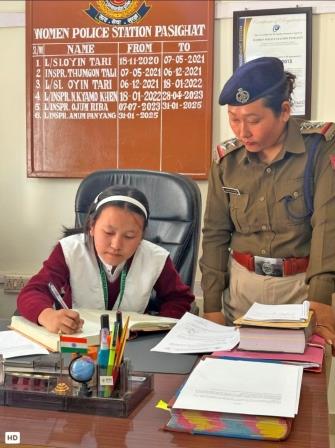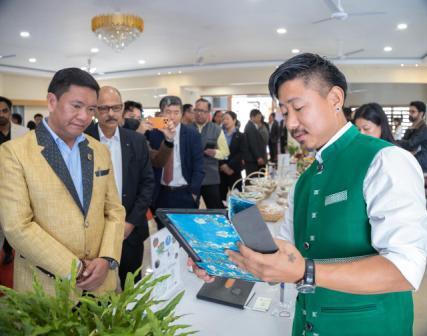-
Sona reviews PMGSY, VVP projects in Itanagar Circle
-
Lok Bhavan celebrates UP Diwas
-
 KGBV student leads WPS Pasighat on National Girl Child Day
KGBV student leads WPS Pasighat on National Girl Child Day
-
Meritorious students felicitated on National Girl Child Day
-
Awareness on POCSO held as part of National Girl Child…
-
Anini certifies 79 Nature Guides on National Tourism Day
-
 Startup success stories reflect potential of state’s youth: CM
Startup success stories reflect potential of state’s youth: CM
-
 Mein participates in vintage Willys Jeep Rally, inaugurates World War…
Mein participates in vintage Willys Jeep Rally, inaugurates World War…
-
DG Assam Rifles visits Khonsa Battalion
-
Governor advises DGP to take firm action on illegal migration
The long-awaited National Education Policy (NEP) 2020 released on Wednesday by the central government after cabinet approval has proposed a lengthy list of measures with the dual aim of bringing in major transformational reforms in various core areas of the education sector along with a number of supplementary restructuring and streamlining proposals. Few will doubt the honest intention of this important policy initiative, which has arrived after a long gap of 34 years. Despite all the finer points, the target to take the current volume of national investment in education from the current level of around 4.6% of the GDP to only 6 % will attract little appreciation as it was expected that to bring faster and qualitative transformation, particularly in the core infra heads, at least 10% would have been a more acceptable figure. But still, much can be achieved through this policy if there remains a sustained and careful vigil by both Centre and states, since the exercise can only taste success if there is a collaborative approach.
One of the major takeaways from NEP 2020 which needs special mentioning is enlarging the ambit of the Right to Education Act from the current 14-year age limit of pupils to 18 years and universalising pre-primary education by 2025. While the efficacy of the proposed 5+3+3+4 schooling model replacing the current 10+2 system will be tested over the coming academic years, the idea of bringing flexibility in choosing subjects across various streams such as arts, commerce and science is expected to receive appreciation both by students and their parents. Another hallmark of the policy will be restructuring of board exams into objective and descriptive sections which will test the in-depth knowledge of students, allowing a level-playing field for those who are intelligent yet lack memorising powers. Quality of school education has been a raging topic and to take care of this, a comprehensive National Curriculum Framework for Teacher Education (NCFTE) 2021 will be formulated by NCTE in consultation with NCERT. The proposal to refurbish the National Scholarship Portal for fast tracking scholarship disbursal for SC/ST/OBC students also promises to cater to the needs of Northeast students. But, in context of the digital connectivity limitations in the NE, particularly in Arunachal, it remains to be seen how much effective the thrust on online education is going to be in this region. It needs mentioning that unless internet connectivity is improved in the state, this major goal of the NEP will remain unfulfilled.
If the changes are intended beyond the ‘cosmetic’, the implementation of the policy needs to be taken to a hyperactive level. NE and Arunachal need paradigm changes in its education milieu. NEP must incorporate these genuine needs in its fold, and if needed, earmark special provisions for the region.

Kenter Joya Riba
(Managing Editor)She is a graduate in Science with post graduation in Sociology from University of Pune. She has been in the media industry for nearly a decade. Before turning to print business, she has been associated with radio and television.
Email: kenterjoyaz@easternsentinel.in / editoreasternsentinel@gmail.com
Phone: 0360-2212313

